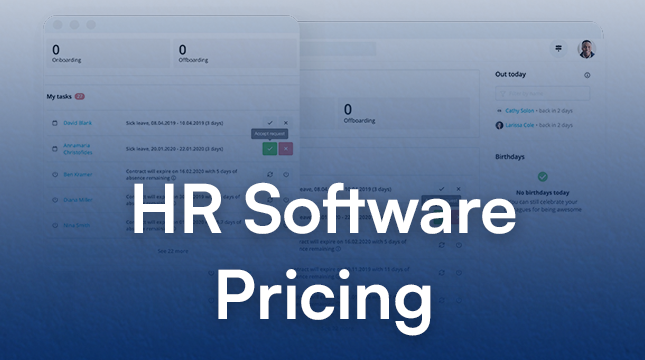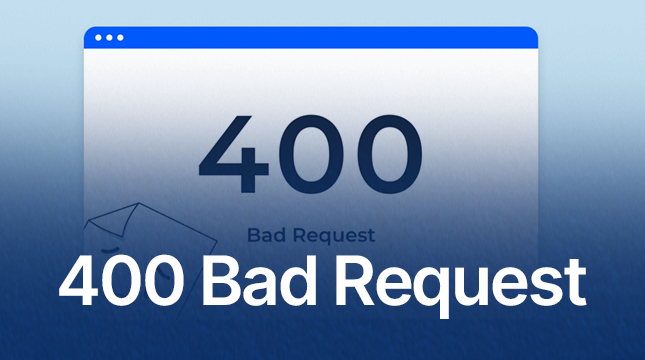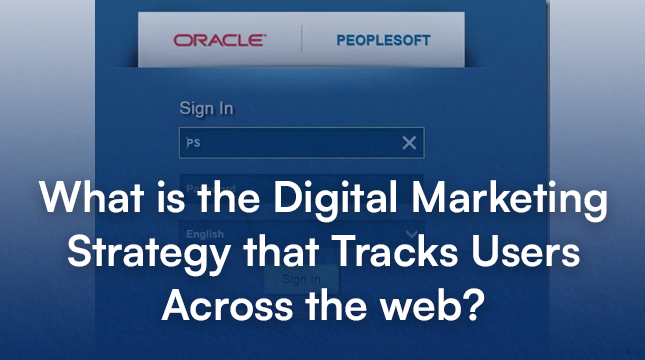This website uses cookies so that we can provide you with the best user experience possible. Cookie information is stored in your browser and performs functions such as recognising you when you return to our website and helping our team to understand which sections of the website you find most interesting and useful.
Ultimate Guide to Understanding HR Software Pricing in 2024

HR software has become an essential tool for businesses of all sizes. It streamlines processes, saves time, and keeps your organization compliant. But with so many options available, figuring out HR software pricing can feel like deciphering a secret code. This blog post will shed light on the different pricing models and factors to consider when choosing an HR solution that fits your budget.
The Landscape of HR Software Pricing
HR software pricing models vary widely, ranging from simple per-employee/per-month (PEPM) pricing to more complex tiered structures based on features, usage, or number of users. Each model has its benefits and challenges, and understanding them is essential for selecting the right fit for your organization.
Per-Employee/Per-Month (PEPM) Pricing: This is one of the most straightforward pricing models, where companies pay a fixed fee for each employee per month. It offers predictability and scalability, making it suitable for businesses of all sizes. However, as the number of employees grows, so does the cost.
Tiered Pricing: In this model, pricing is structured into tiers based on the number of employees or features included. As businesses scale, they can move up to higher tiers to access additional features. While this offers flexibility, it can be challenging to predict costs accurately, especially as needs evolve.
Usage-Based Pricing: Some HR software platforms charge based on usage metrics such as the number of job postings, assessments, or training modules utilized. This model offers cost efficiency for businesses with fluctuating needs but may result in unpredictable expenses.
Custom Pricing: Larger enterprises or organizations with unique requirements may negotiate custom pricing based on their specific needs. While this offers tailored solutions, it may involve higher initial costs and ongoing negotiations.
Factors Influencing HR Software Pricing
Several factors influence HR software pricing, and understanding them is crucial for evaluating the value proposition of each solution.
Features and Functionality: The breadth and depth of features offered by HR software significantly impact pricing. Basic packages typically include core HR functions like payroll, benefits administration, and time tracking, while higher-tier packages may include advanced analytics, employee engagement tools, and recruitment capabilities.
Integration Capabilities: Seamless integration with existing systems and third-party applications can enhance efficiency and reduce manual work. However, integration capabilities may come at an additional cost, depending on the complexity of integration requirements.
Scalability: As businesses grow, their HR software needs to scale accordingly. Scalability is a critical consideration for pricing, as businesses should ensure that the chosen solution can accommodate future growth without exorbitant cost increases.
Support and Maintenance: Reliable customer support and regular software updates are essential for optimal software performance. Pricing structures may include ongoing support and maintenance fees, which should be evaluated alongside the core software costs.
Implementation and Training: The cost of implementation, onboarding, and training can vary significantly depending on the complexity of the software and the level of support required. Businesses should factor in these costs when assessing the overall affordability of a solution.
Maximizing Value and ROI
While HR software pricing is an important consideration, focusing solely on cost can overlook the value that a comprehensive HR solution can provide. Instead, businesses should strive to maximize value and return on investment (ROI) by:
Aligning Features with Business Needs: Prioritize features that address your organization’s specific pain points and strategic objectives. Investing in features that improve efficiency, compliance, and employee experience can yield significant long-term benefits.
Negotiating Contracts: Don’t hesitate to negotiate pricing and contract terms with HR software vendors. Many vendors are willing to customize pricing packages or offer discounts, especially for long-term commitments or bundled services.
Leveraging Free Trials and Demos: Take advantage of free trials and product demos to thoroughly evaluate the functionality and usability of HR software before committing. This allows you to make an informed decision and ensures that the chosen solution meets your requirements.
Calculating Total Cost of Ownership (TCO): Consider the total cost of ownership over the lifespan of the software, including implementation, training, support, and potential scalability costs. While a solution may have a higher upfront cost, it could offer greater value and ROI in the long run.
Beyond the Base Price: Additional Costs to Consider
While the per-employee or tiered price might seem straightforward, there can be additional costs to factor in:
- Implementation fees: Some vendors charge a one-time fee to get you up and running with the software.
- Training fees: You may need to pay extra for training for your HR team and employees.
Integrations: If you want to integrate your HR software with other systems, there may be additional fees. - Customer support: Higher-tier plans often come with better customer support options.
Finding the Right Fit for Your Business
Here are some tips to consider when choosing HR software based on pricing:
Identify your needs: Make a list of the HR functions that are most important to your business. This will help you narrow down your options and avoid paying for features you don’t need.
Get quotes from multiple vendors: Don’t be afraid to shop around and compare pricing from different HR software providers.
Negotiate: There is often room for negotiation on pricing, especially if you are a larger organization.
Consider the total cost of ownership: Don’t just focus on the base price. Factor in all the potential additional costs when making your decision.
While off-the-shelf solutions offer a range of benefits, sometimes the best fit for your organization is custom HR software.
We, at Netizens, understand that your HR needs are unique. We can work with you to design and develop a solution that perfectly aligns with your specific workflows and processes. With custom HR software, you can gain a competitive advantage by streamlining operations, boosting employee satisfaction, and ensuring regulatory compliance—all within your budget.
Contact Netizens today to discuss your HR software needs and explore how we can craft a solution that empowers your people strategy.

Let's Start Your Project
Get free consultation for your digital product idea to turn it into reality!
Get Started






